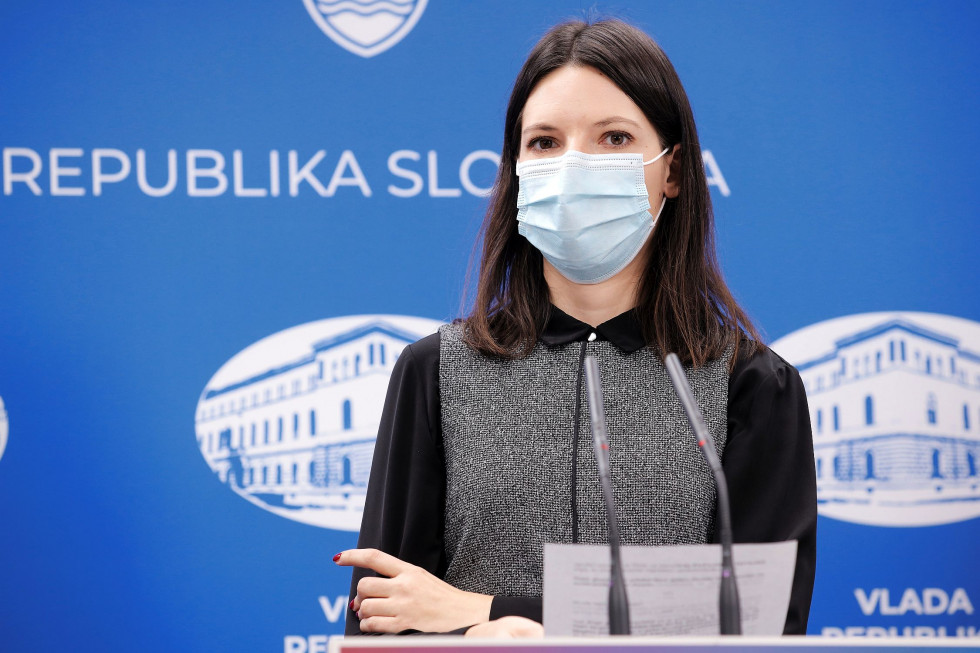080 51 00 – Psychological support for citizens 24 hours a day, 7 days a week
Maja Bratuša first communicated a reply to the question that arose at the morning press conference regarding the #OstaniZdrav application. Some 188,840 users of the Android operating system had downloaded the application by Sunday, 13 December, and 19,120 users of the iOS operating system by Saturday, 12 December.
The number of the issued TAN codes amounted to 81 yesterday, i.e. 13 December, 88 on Saturday, and 90 on Friday. As the TAN code is kept 14 days on the server in condensed form, only the number of the codes entered in the last 14 days is known, which totals 1,367.
Contacts with their next of kin are very important for residents
According to Stanka Vauh, Director of Prevalje Retirement Home, there are currently 155 elderly people in their retirement home. In the second wave of the epidemic in September, they encountered the first positive case and another one in October. In both cases, the virus was transmitted through the staff, but did not spread in either case. At the beginning of November, the virus nevertheless spread in the home after the return of a resident from a hospital.
Some 16 residents are in the red zone, 80 have already recovered from the virus and 38 remain negative. The retirement home recorded 17 deaths due to COVID-19. A total of 68 residents have died this year to date. For comparison, 55 people died in the last two years by the same date.
Rapid tests are being implemented with the help of the mobile team from Ravne Community Health Centre. Two asymptomatic staff members were recorded last week, but no-one was positive at today’s testing. The home also cooperates with local mayors who helped with the purchase of oxygen concentrators. Visits by the next of kin are permitted almost continuously, albeit in accordance with a special regime, but the availability of this option nevertheless means a lot to everyone.
If in distress, call 080 51 00
Psychologist Peter Markič described the operations of two toll-free phone numbers that provide psychosocial assistance during the epidemic to all who need it. A psychologist or a relevant expert is available on the first phone number at all times. A great number of organisations cooperate in this on-call service, which is very encouraging. The experts provide support concerning various issues to all who are ill, who are afraid of becoming ill, and those who have lost their loved ones and are in mourning. The experts give advice on implementing remote schooling, balancing parenting and work, and other similar issues. They receive an average of 300 calls a week.
Children and adolescents can call the TOM helpline, which has been known to the public for 30 years. It is open between 12.00 and 20.00. The helpline receives some 80 calls a day. The TOM helpline: 116 111. A special phone number is also available to rescue workers and police officers, as they also encounter psychological trauma during interventions when performing their duties.
Markič concluded that mental illness is unfortunately still stigmatised. Rejections of the opportunity to talk are still perceived, but such reservations are diminishing.


